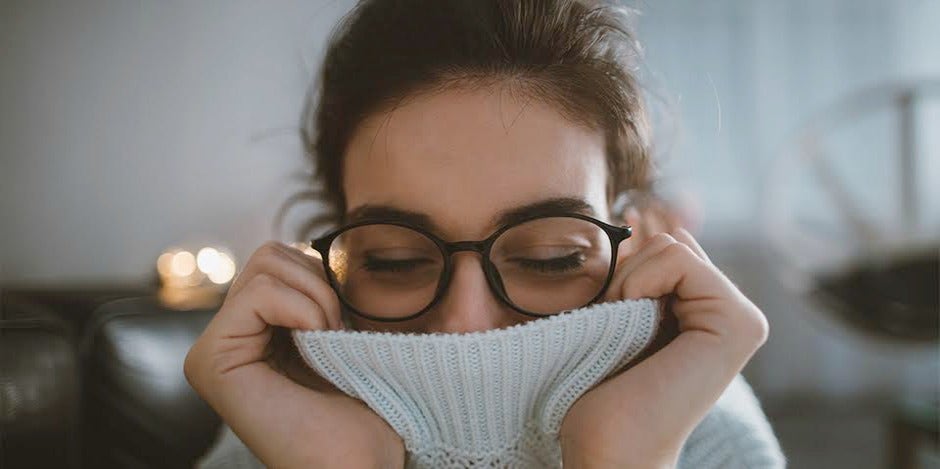How To Protect Your Eyes Against Coronavirus By Wearing Glasses Instead Of Contact Lenses
Have you been doing everything to protect yourself?
 getty
getty According to the CDC, practicing social distancing and self-quarantining are the best ways to prevent coronavirus exposure. As a nation, we intend to flatten the curve.
But with all the efforts to stop touching our faces, specifically our noses and mouths, we seem to forgot that these aren't the only ways coronavirus spreads. COVID-19 can be spread through our eyes as well.
Should you wear contact lenses? And how can you protect your eyes against coronavirus?
While everyone should keep their hands clean, since it’s a very effective way to combat against contracting the virus, there's still a lot we can learn about eye safety. And while it's common sense not to touch your eyes with a dirty hand, what about people who need corrective eyewear?
The fact that coronavirus can be contracted through the eyes is causing many to wonder about wearing contact lenses. Is it safe?
Well, to put contacts in, one has to directly insert it into their eye. Touching your eyes, in general, can lead to infections. That's why it's important to practice lens care, which includes properly washing your hands before and after, and taking care of your contact lenses. If you don’t, that raises your chances of contracting an infection.
Imagine if you unknowingly have coronavirus droplets on your hand and insert your contact lenses without washing first. Now that would be a recipe for disaster.
If wearing contact lenses increases risk, what about wearing eyeglasses as a form of protection?
Although it is possible to contract coronavirus through the eyes, it is also very unlikely. Coronavirus is more likely to enter the body through the mouth and nose. Nevertheless, we should still take safety precautions with our eyes, nose, and mouth equally, because we never know when or where we might contract this virus.
So, rather than wearing contact lenses, it may be healthier to wear glasses.
The American Academy of Ophthalmology (AAO) recommends switching out your contacts for glasses, just for the time being. The main reason for these guidelines is so people who wear contact lenses limit the number of times they touch their eyes and reduce self-inflicted eye irritation.
While the next few weeks and months will be an inconvenience for those who rely on their contact lenses, in the grander scheme of things, it’s all to reduce the likelihood of contracting coronavirus.
This not only benefits you, but others within your community as well. Temporary inconveniences are worth it if the benefit outweighs the sacrifice; in this case, it does.
Why should you wear eyeglasses instead of contact lenses?
According to the AAO, there are a few reasons.
1. People who wear contact lenses touch their eyes more.
Think about it. For contact lenses, you touch your eyes to insert the lens, and again when you remove them. In addition, if you think about how often you touch your eyes, it's quite a lot. And, usually, it's after you touch another part of your face or body.
Dr. Sonal S. Tuli, M.D. recommended to AAO to “Consider wearing glasses more often, especially if you tend to touch your eyes a lot when your contacts are in. Substituting glasses for lenses can decrease irritation and force you to pause before touching your eye.”
2. Glasses add another layer of protection.
Glasses give you a protective layer between your eyes and droplets. Which makes sense, since eyeglass lenses cover the front of your eyes. However, it's important to note, per AAO, "they don’t provide 100 percent security. The virus can still reach your eyes from the exposed sides, tops and bottoms of your glasses."
Ultimately, whether or not you choose to ditch your contact lenses for glasses, always practice proper hygiene and eye care. Though there are no confirmed cases of people contracting coronavirus because of inserting contact lenses, there's nothing wrong with taking precautionary measures.
Tamara Sanon is a writer with a passion for covering topics about health and wellness, lifestyle, astrology, and relationships.

